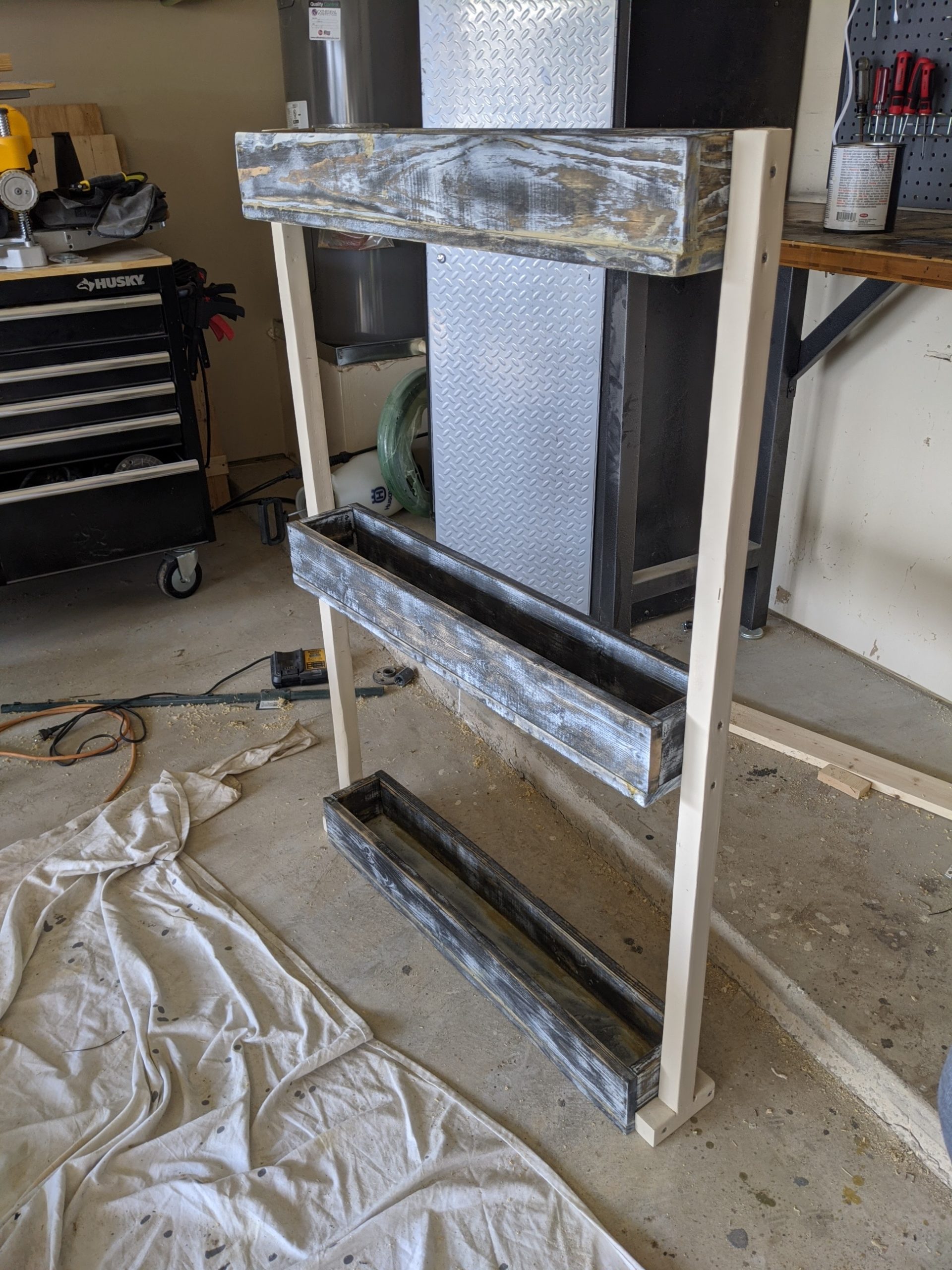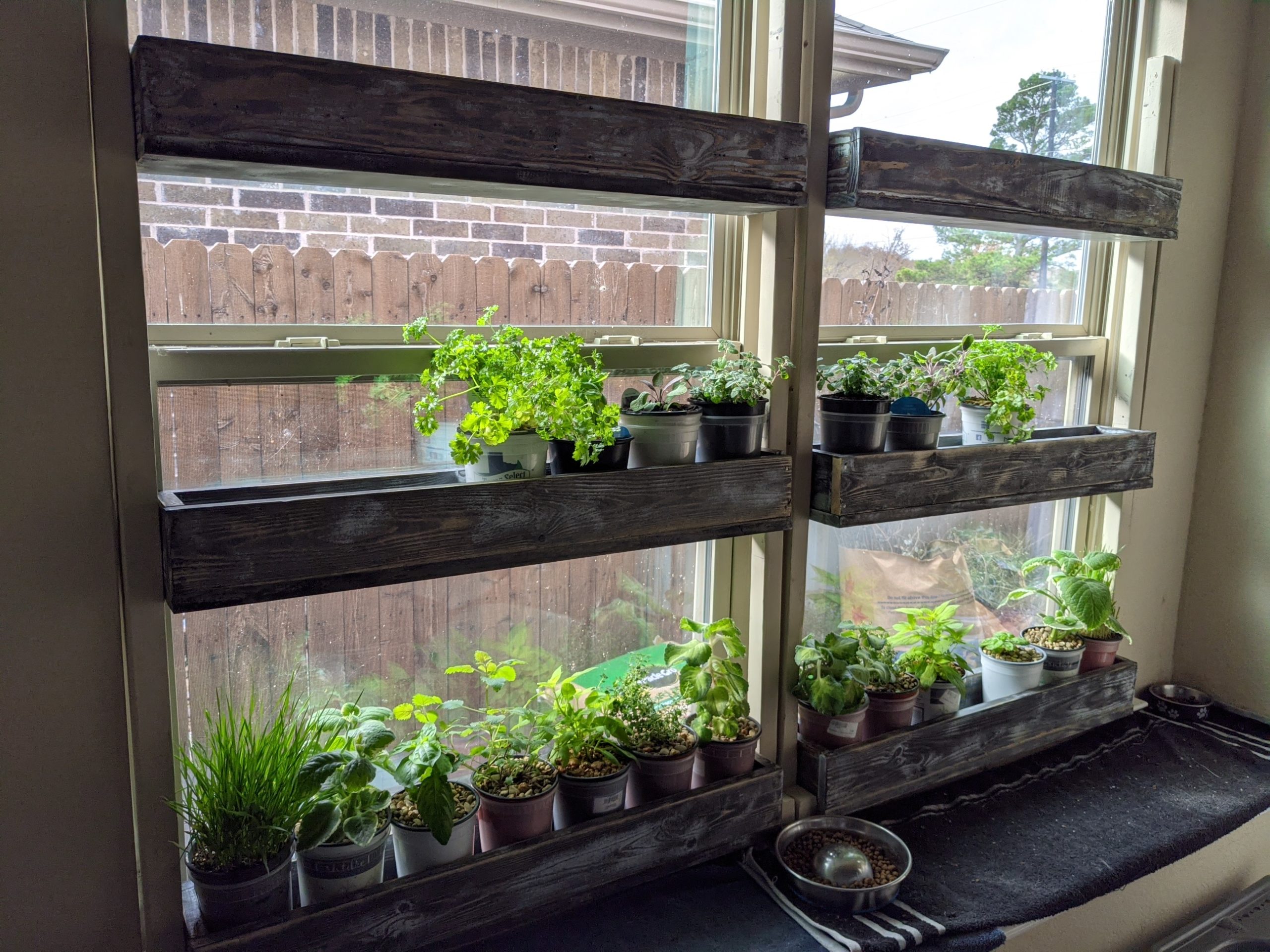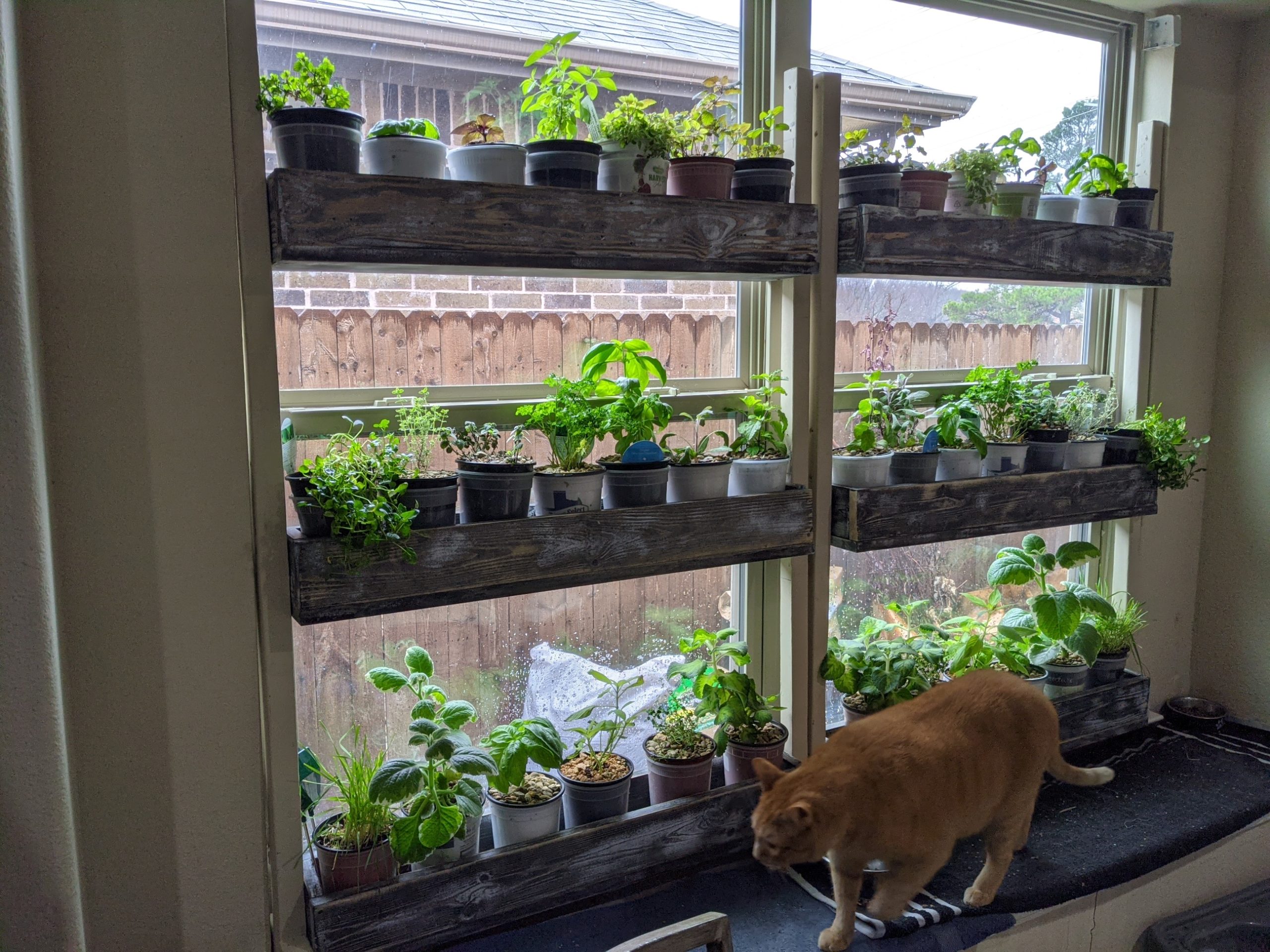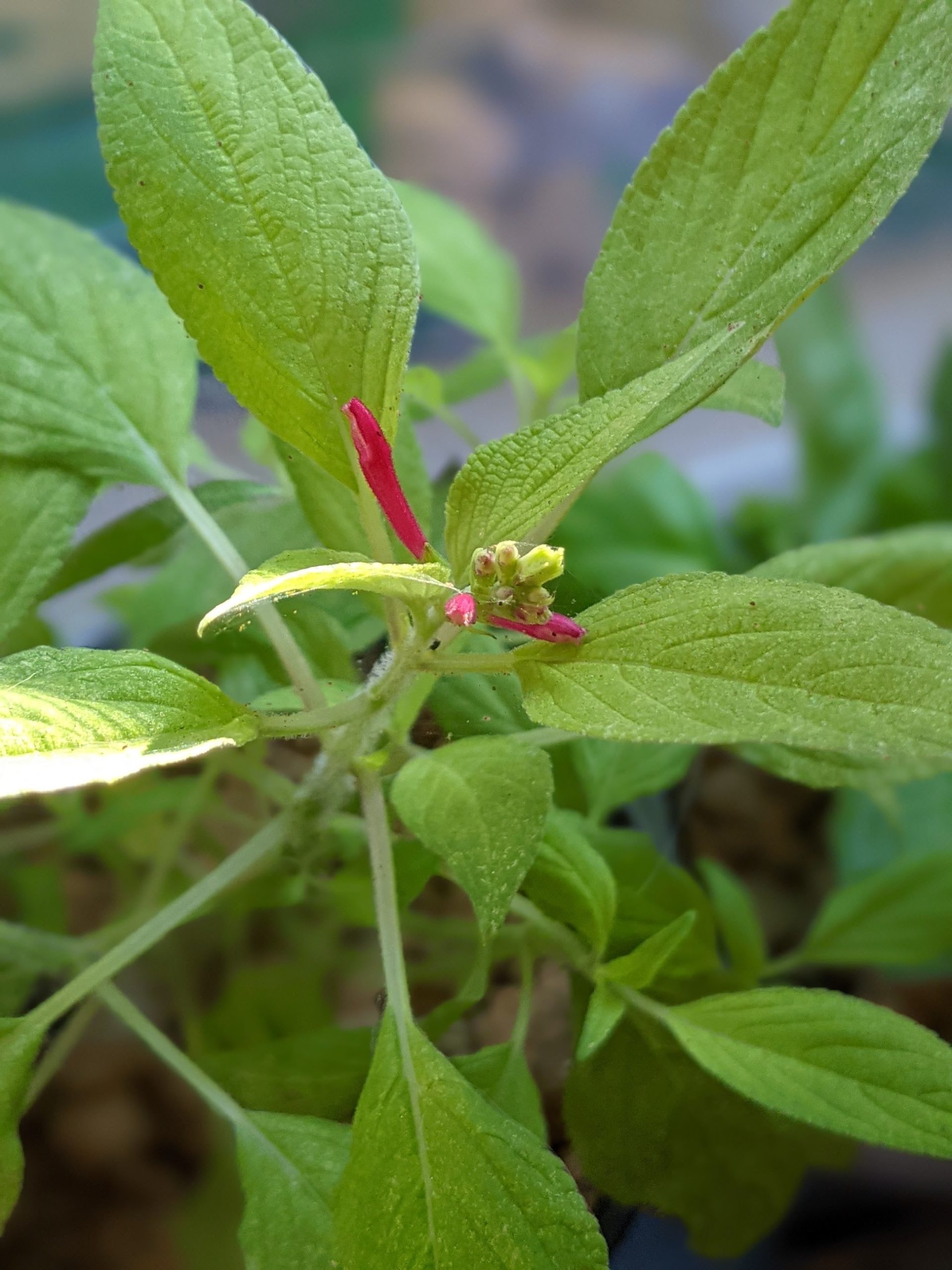Something that’s been glaringly missing from this year’s backyard garden are the volunteer basil plants that normally sprout about this time of year. I fondly remember the monstrous basil plants that drew in all the pollinators.
I dug into my seed drawer several days ago to empty out some of the basil seeds that I ordered from previous years.
Sprinkled them into my stock tank beds and here they are aplenty, sprouting happily.



I’m looking forward to some colorful Purple Ball basil as well as Fino Verde and Amethyst Improved.
Of course I’ve always had rooted cuttings of the pesto perpetuo basil that I keep indoors. However, they don’t flower very well and they really can’t handle the Texas heat.




















